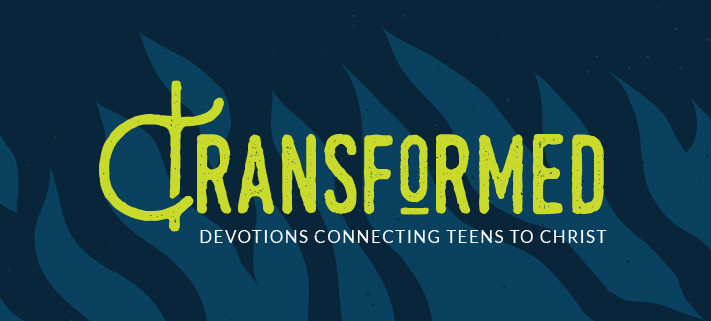Less About the Fence, More About the Playground
by Kristi Meyer
“Everything is permissible”—but not everything is beneficial. “Everything is permissible”—but not everything is constructive. Nobody should seek his own good, but the good of others (1 Corinthians 10:23-24, NIV84).
I recently read a blog post that painted the following picture: a city is building a new playground. It’s going to be a beautiful playground full of slides and swings and monkey bars, but unfortunately the only park space available is near a busy intersection. Before the playground opens, the city installs a large fence around it—a fence intended to let the children play safely.
Once the playground opens, it becomes clear that the fence is indeed doing its job. Children are having fun on the playground within the fence’s confines, and there’s no worry from parents that their children will run out into the busy intersection.
But one day a new family comes to the playground, a family that wants to make sure their daughter knows why the fence is there. They tell her that the fence is the only reason she’s able to play on the playground at all, remind her to always keep her eyes on the fence, and admonish her to never try to climb it.
What’s going to happen? That child is going to play, yes, but her playing is always going to be shaped and influenced by the fence. She might even stay farther away from the fence than she normally would just to make sure her parents know she isn’t trying to climb it. She’s not really thinking about the playground in the same way the other children are. She’s thinking about the fence.
Don’t teach authoritatively, don’t act in a way that violates headship—these are important topics to contemplate. But when they are overemphasized, when they become the main point of the conversation, it’s easy to lose sight of our unique callings and instead feel overly restricted.
I’m sure you see the point of this analogy. When it comes to women and the church, it sometimes feels like all we talk about is the fence. Don’t teach authoritatively, don’t act in a way that violates headship—these are important topics to contemplate. But when they are overemphasized, when they become the main point of the conversation, it’s easy to lose sight of our unique callings and instead feel overly restricted. We’ve talked previously about focusing more on what we as women can do rather than what we can’t do. How else can we keep the spotlight on the playground rather than on the fence?
Can vs. Should
As I mentioned earlier this week, my conversations on women and the church originally began with the question “What can a woman do in the church?” Or, to make it more personal, I always tried to ask, “Can I do this?” when determining if I could serve in a certain way at my congregation. I never asked with malicious motives; I wasn’t trying to push the boundaries beyond what God says in his Word. But I was trying to determine if the places my local congregation didn’t permit me to serve—for example, ushering or facilitating Bible study at a home-based growth group—were really places I couldn’t serve or were instead unnecessary restrictions.
It’s taken awhile, but I’ve finally come to the point where my question has changed. Instead of asking “Can I do this?” I’m now much more likely to ask “Should I do this?” There are times when the answer to those two questions is the same, but there are also times when the answer is different. Previously, I thought this mismatch was bad and unnecessarily restrictive to me as a female. I thought that if I could do something, I should be able to do it, especially if that meant completing a job that was currently incomplete or fulfilling a need that was currently unfilled.
There are other things to think about than whether or not I as a female should be able to do something at church. There are other factors to weigh besides just a job left incomplete or a need left unfilled.
Over the course of many conversations, much prayer, and quite a bit of study and growth, I’ve come to a place where I understand that “Can I do this?” isn’t always the right question to ask. There are other things to think about than whether or not I as a female should be able to do something at church. There are other factors to weigh besides just a job left incomplete or a need left unfilled.
Building Up the Body of Christ
This week’s earlier devotion discussed one of the most important considerations: permissible vs. beneficial, especially as related to the body of Christ. You might be serving in the most helpful way, taking care of something that isn’t on anyone else’s radar, or making the church a better place by your contribution. But if you’re creating pangs of conscience for a fellow believer, if you cause other congregations to question your actions, if you inadvertently make the conversation more about you than about the ministry you are carrying out, then the good you are doing may be coming at a cost.
Another consideration circles back to the role for which we as women were created: the role of ezer, of helper. What follows is a stereotype, but like any stereotype, it is somewhat rooted in truth. When a need is identified, women are more likely than men to step up and fill that need. This will often be done without much fanfare, with very little need for recognition. We as women see something that needs to get done and we can take care of it, so we do. It’s as simple as that.
But in the church, this can turn into taking opportunities away from males to serve or giving them opportunities to abdicate their leadership. I am not saying that any of this is being done intentionally or with sinister motives. However, we are all sinful creatures, and original sin gives us all the propensity—at varying levels—to step out of our God-given roles.
As a female who likes to take care of things, stepping back sometimes feels like I’m selling out. Something isn’t being done? And I’m capable of doing it without violating headship? Why wouldn’t I do it? Again, I’ve come to learn that there are other ways to help accomplish the task, ways that allow me to serve as a helper, ways that let me build up the body of Christ and encourage men in their unique calling. Sometimes these ways are harder in the short run but much more beneficial—for a wider audience than just me—in the long run.
Exercising Leadership
We’ve talked about the difference between leadership and authority several times this summer, but I want to emphasize that difference again because it is such an important concept. Everything I’ve mentioned above—framing questions in terms of “can vs. should” and giving those around me the opportunity to fulfill their God-given callings—does not mean women can’t lead in the church.
No, there are still ways that those of us who have been gifted with leadership can use that gift in the church—not by trying to take charge, but by partnering with fellow members of the body of Christ in service to one another and in service to our neighbors.
No, there are still ways that those of us who have been gifted with leadership can use that gift in the church—not by trying to take charge, but by partnering with fellow members of the body of Christ in service to one another and in service to our neighbors. For me personally, this means working with my pastor to execute the worship plans he’s created, crafting communication pieces that convey decisions made by the church council and the board of elders, and taking point on a host of other supportive tasks.
What does this look like for you in your congregation? If you don’t know, I’d encourage you to have a conversation with your pastor to try and answer that question. This might be intimidating. It might be scary. It might seem like a topic that is best left by the wayside because your pastor has so many other things to deal with. But instead, I pray that such a conversation will be valuable, both for you and for him.
God created the fence before sin entered the world; therefore the fence is perfect. Our sinful nature can cause us to chafe at the existence of the fence, but that’s not the fault of the fence nor of the One who put the fence in place. And as often as we talk about the fence, it’s not there to restrict our time on the playground. It’s there to keep us safe and to establish good order, to enable us to play on the playground at all, and to help us make the most of our time on the playground.
As women, as congregations, as a synod, let’s keep our eyes more on the playground and less on the fence. We can then enjoy the playground in freedom—freedom that the fence itself gives.
For Further Reflection
- In changing the question from “Can I do this?” to “Should I do this?”, how can you come to peace with situations where the answers to those two questions are “yes” and “no,” respectively?
- What are some specific ways you can encourage the males in your congregation, especially as they seek to fulfill their responsibility of living out their unique calling of head?
- How does the conversation change when you are told, “No, the Bible says you can’t do this,” when there is actually no such prohibition in Scripture? How must the conversation change at this point in order to remain faithful to God’s teaching on Christian freedom?
Closing Prayer
Lord God, we thank you for perfectly creating unique callings for men and women. Guide us as we continue to wrestle with how to live out those callings in a sin-darkened world. Remind us that we are a part of the body of Christ, and motivate us to always build up and edify that body with our words and actions. You have created countless opportunities for us to serve you; show us how we can best embrace these opportunities in all that we do. Amen.

Reflections on our Unique Callings is brought to you by WELS Women’s Ministry.
All Scripture quotations, unless otherwise indicated, are taken from the Holy Bible, New International Version®, NIV®. Copyright ©1973, 1978, 1984, 2011 by Biblica, Inc.™ Used by permission of Zondervan. All rights reserved worldwide.







